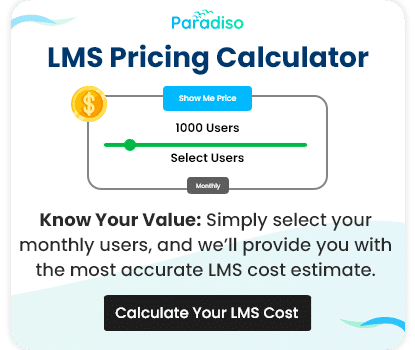Introduction For LMS Pricing
As online learning becomes mainstream, it is essential to choose a Learning Management System (LMS) tailored to your institution’s mission and goals. If you are thinking of offering self-hosted online courses, you may have come across several options available to you about learning management systems. The decision to switch to a Learning Management System is easy, but the hard part comes when choosing an LMS. Many factors have to be considered like LMS costing includes set up fees, maintenance expenses, licensing fees and other additional costs and the LMS pricing model is always a serious consideration. Budgets vary, and suppliers can surprise you, so take a look at the full range of options available.
The importance of LMS costing
Costs are also an essential factor in determining which LMS or systems can best meet an organization’s needs. For example, while some new LMS have little or no initial pricing costs and take up a large portion of the company’s time, more expensive LMS may find it harder to integrate seamlessly into your organization’s processes because of their higher pricing. The cost of LMS for your future needs and the price you are currently spending on implementing LMS will bring you to your answer. Organizations in the LMS solution market should also consider other costs, such as subscription and license fees. If you need ad accounts for your online programs, these costs will be added to LMS’s cost. For example, if a virtual classroom costs $600, your LMS costing will be much higher than what is shown in this field. These expenses cover the total cost of a complete, full-fledged, cloud-based, or open-source LMS solution. If in doubt, ask your LMS salesman if he will provide you with a list of the associated start-up costs – up to LMS – and their maturity. These answers will help you find out how much your Learning management system cost and provide a better understanding of your organization’s needs for a LMS. Before you do everything – fleetingly – remember that the best LMS should be able to work from the perspective of your organization and offer you good value for money.











